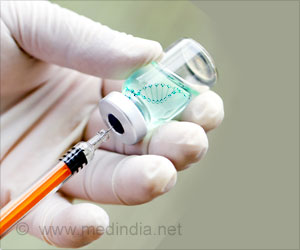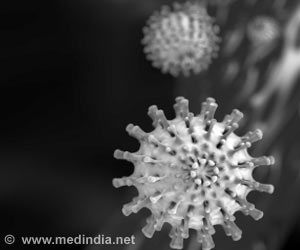DNA vaccines developed against two of the dengue virus serotypes produce effective humoral and cellular immune response in mice.
- New DNA vaccine candidate, pVAX1-D1ME, has been found successful in generating both humoral and cellular immune response in mice against dengue virus serotype D1.
- Bivalent DNA vaccine generated an immunogenic response to serotypes DV1 and DV2 but with lower end point titers of anti-DV1 and anti -DV2 indicating interference between the two serotypes.
- Results are suggestive of a new economical and effective DNA tetravalent vaccine against all four dengue virus serotypes.
Dengue and its symptoms
Considered one of the fastest growing epidemics in the world, dengue is caused by the dengue virus, that has four distinct serotypes (DV1-4) The virus can cause a range of conditions including dengue fever, hemorrhagic fever and dengue shock syndrome. Dengue fever is the most common and is a mosquito borne disease predominantly occurring in the tropical and subtropical parts of the world. The symptoms may include:- Fever, as high as 106 F (41 C)
- Headaches
- Muscle, bone and joint pain
- Pain behind the eyes
Vaccination for Dengue
There is presently no specific treatment or full-proof vaccination against all serotypes of dengue virus. While the recombinant, live, attenuated, chimeric yellow-dengue tetravalent dengue vaccine (CYD-TDV, Dengvaxia) is the most promising, vaccination related side effects in children below the age of nine, limits its administration. However, the push for DNA vaccines is accelerating due to its many potential benefits.DNA vaccines
The development of DNA vaccines is a radically new approach to vaccination that is based on in-situ (inside the body) production of antigens. It involves the introduction of a vector, usually a plasmid which is genetically modified to contain genes that encode particular antigens and produce an immune response in the host towards that specific antigen. The means of delivery are direct and may include microinjection or electroporation. These vaccines have an added advantage of being stable, inexpensive and easy to produce when compared to traditional vaccines. Due to lack of sufficient immunogenicity in large animals, there is presently no licensed DNA vaccine for humans.pVAX1-D1ME Monovalent vaccine and pVAX1-D1ME -pVAX1-D2ME Bivalent vaccine
The vector used for the study was pVAX1. It is a unique US FDA-approved vector for developing DNA vaccines. pVAX1-D1ME expressing precursor of membrane protein (prM), and envelope protein (E) of dengue virus serotype, DV1, was introduced into mice via intramuscular injection (IM) and electroporation. It was observed that administration with 50 micrograms of pVAX1-D1ME via electroporation with three immunizations induced persistent humoral and cellular immune responses and effectively protected mice against lethal DV1 challenge. Bivalent vaccine with a combination of pVAX1-D1ME -pVAX1-D2ME was also successful in inducing a balanced immune response against dengue virus serotypes, DV1 and DV2. However, the end point titers of anti-DV1 and anti-DV2 were lower when compared to the monovalent titers, indicating interference between the two serotypes.To conclude in the words of corresponding author Dr. Jing An of Capital Medical University, China, where the study was conducted, “We are developing a dengue tetravalent DNA vaccine and evaluating the immunogenicity in animal models. Finally, we try to translate the DNA vaccine candidates for further clinical application."
References:
- Zheng, X., Chen, H., Wang, R., Fan, D., Feng, K., Gao, N. and An, J. (2017). Effective Protection Induced by a Monovalent DNA Vaccine against Dengue Virus (DV) Serotype 1 and a Bivalent DNA Vaccine against DV1 and DV2 in Mice. Frontiers in Cellular and Infection Microbiology, doi:10.3389/fcimb.2017.00175
- Effective Protection Induced by a Monovalent DNA Vaccine against Dengue Virus (DV) Serotype 1 and a Bivalent DNA Vaccine against DV1 and DV2 in Mice - (http://journal.frontiersin.org/article/10.3389/fcimb.2017.00175/full)
















